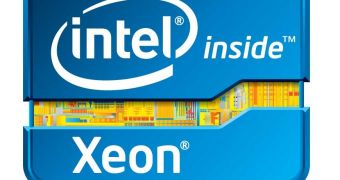Some information has emerged regarding a certain series of processors that, despite what Samsung and other memory makers wish for, won't arrive before 2014.
Samsung was a bit disgruntled with Intel's Haswell-EP launch plans because it hoped DDR4 memory would come to market faster. Since DDR3 isn't selling well, and probably won't return to pre-2009/2008 prices, DDR4 is seen as a saving grace, of sorts.
The Santa Clara, California-based company hasn't budged from its roadmap though, not yet anyhow.
Haswell-EP will be launched in the second half of 2014 and will be preceded by Ivy Bridge-EP in 2013. Both are designed for Big Data applications (data centers, supercomputers, cloud, etc.)
VR-Zone says that the core count will go as high as 16 and that the thermal design power (TDP) will range between 120W and 160W.
Those are fairly high power draw ratings, and they would be a problem if Advanced Micro Devices were going to offer an alternative.
That isn't shaping up to be the situation, however. AMD should eventually launch the Abu Dhabi server CPU series, but said line won't be up to scratch and isn't supposed to compare with Haswell-EP anyway. There should be a successor in the pipeline, but there is little to no information on it.
That leaves NVIDIA's Project Denver-based Server CPU and Maxwell graphics processing units. And since Tesla GPUs (K10 and K20 in particular), though very good at parallel processing, come in 225 to 300W or above packages, the competition should be pretty tight.
That said, Intel's 2013/2014 server platform is codenamed Grantley and will be able to handle even 8-channel memory interfaces (4 or 6 DIMM slots on a single 72 / 64+8-bit lane). VR-Zone was actually shown a prototype platform with a power draw of 100 Amps in normal conditions and 120 Amps in Turbo Mode.
That wasn't the big deal though. The real highlight was that Haswell-EP was supposed to withstand up to 190 Amps on air cooling. Thus, overclockers will have a lot to experiment with, so we can safely say some overclocking records will be broken.
A final bit of relevant information is that the CPU will require four and five-rail power draw implementations.

 14 DAY TRIAL //
14 DAY TRIAL //